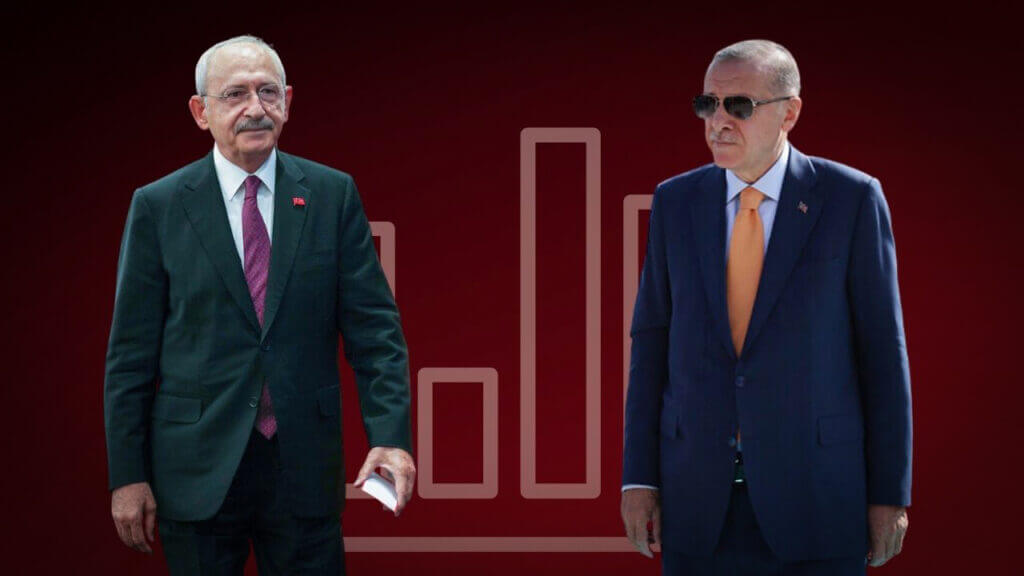A survey conducted by the ORC Research Company has shown that Turkish President Recep Tayyip Erdoğan would have been defeated by his rival, Kemal Kılıçdaroğlu, leader of the secular Republican People’s Party (CHP), by 13 points, if a presidential election were to be held in early March, local media reported on Tuesday.
Earlier this week, the 74-year-old Kılıçdaroğlu was announced as the presidential candidate of an opposition bloc of six parties after emerging victorious from a bruising leadership battle between the heads of the parties, united in the single goal of ending Erdoğan’s two-decade domination of this nation of 86 million people.
Kılıçdaroğlu’s candidacy was first made public following a meeting of the opposition bloc on March 2, and it became official on March 6. The ORC survey was conducted between March 4 and 6 after Kılıçdaroğlu’s nomination became certain.
The results of the poll, which was conducted on 1,850 participants in 28 provinces, showed that when Erdoğan is pitted against Kılıçdaroğlu, Erdoğan and Kılıçdaroğlu would receive 43.2 percent and 56.8 percent of the vote, respectively.
2023 Cumhurbaşkanlığı Seçimi
Aday Tercihleri"Erdoğan/Kılıçdaroğlu yarışında oyunuzu hangi adaya verirsiniz ?"
•Kılıçdaroğlu %56,8
•Erdoğan %43,2Tarih: 4-6 Mart 2023 pic.twitter.com/sRDLpACOpp
— ORC ARAŞTIRMA (@orc_arastirma) March 7, 2023
An ORC survey conducted in January had shown Erdoğan receiving 42.5 percent of the vote to Kılıçdaroğlu’s 41.8 percent.
The company’s first survey conducted after Turkey was hit by several powerful earthquakes last month also revealed that support for the ruling Justice and Development Party (AKP) dropped below 30 percent.
According to the survey, conducted between Feb. 22 and 27 across 45 Turkish provinces, the AKP’s votes decreased from 30.2 percent in January to 29.1 percent after the earthquakes, while support for its election partner, the far-right Nationalist Movement Party (MHP), was 5.4 percent, below the country’s newly set election threshold of 7 percent.
The AKP and MHP along with the small Grand Unity Party (BBP) form the Public Alliance against an opposition bloc of six parties, known as the Nation Alliance.
Within the opposition bloc, support for the main opposition CHP stood at 23.5 percent in the ORC survey, while it was 19.5 percent for the İYİ (Good) Party. Support for the pro-Kurdish Peoples’ Democratic Party (HDP), which is not in the opposition alliance, was 8.1 percent.
Meanwhile, a survey conducted by Aksoy Research between Feb. 23 and 26 also showed the AKP-MHP alliance’s support at 38.9 percent, while the six opposition parties would have received 43.4 in total, with the HDP garnering 12 percent of the vote.
Erdoğan and his government have attracted widespread criticism from earthquake victims as well as opposition politicians due to what they claim was their poor response to the tragedy. They said the government’s failure to prepare the country for earthquakes and its failure to coordinate search and rescue efforts in an effective and timely manner led to the huge death toll, which currently stands at more than 45,000 in Turkey.
Erdoğan announced earlier in March that Turkey would hold presidential and parliamentary elections on May 14 as scheduled despite the earthquakes.
There was speculation about the postponement of the elections since the earthquake region is still suffering strong tremors that make the likelihood of campaigning in the area almost nil.
